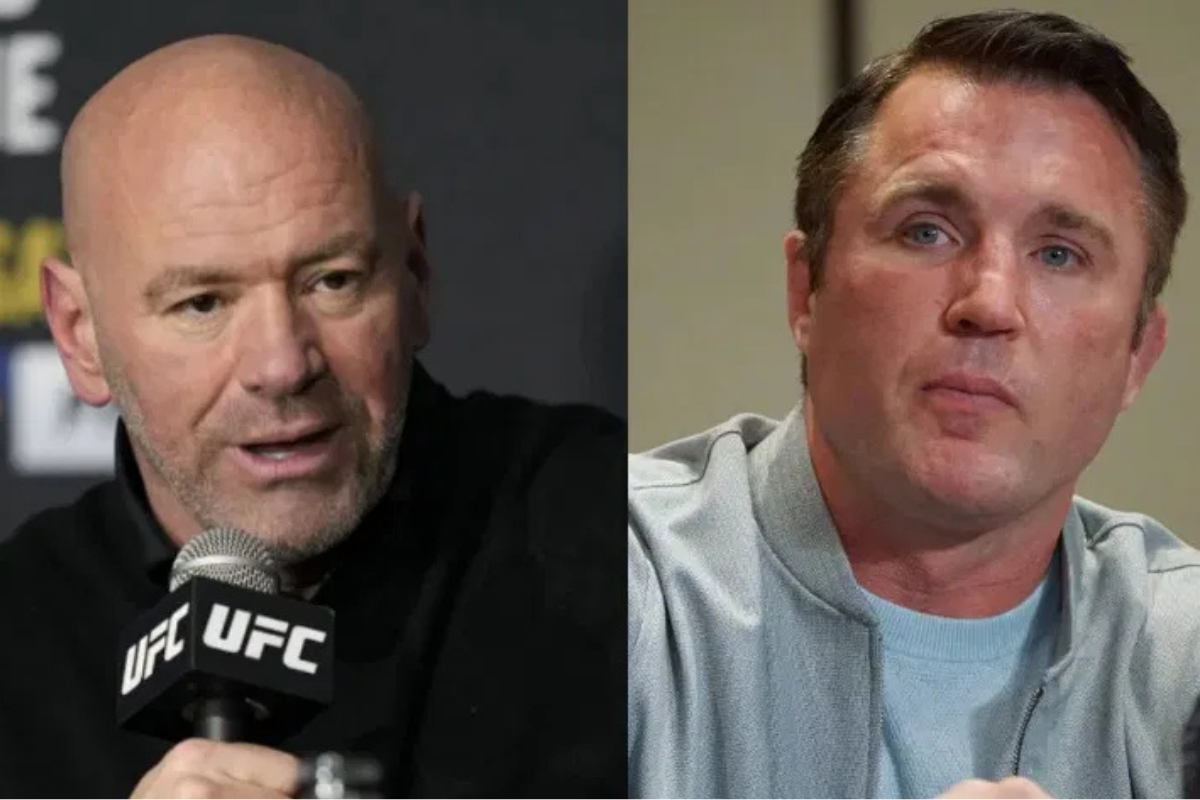
Imago
Credits: Imago

Imago
Credits: Imago
UFC 311 had it all. It wasn’t just another fight card, it was a drama-filled spectacle that could’ve doubled as a Hollywood thriller. Starting from last-minute cancelations, cracks in the Dagestani legacy, and lastly, the looming backdrop of California fires, the event had enough twists to keep fans on edge. But amidst all the noise did we somehow miss out on another catchy twist? A backstage brawl that stole Chael Sonnen’s attention, not for the chaos it created, but for a whole other reason.
Watch What’s Trending Now!
Chael Sonnen, always the storyteller, painted the scene vividly. “Where that video is taken, we’re just behind that,” he said, hinting at a surreal setup where one group held the high ground, a strategic edge you don’t see every day in a brawl. It wasn’t just fists flying. There were kicks too, escalating the chaos to another level. But the most shocking detail wasn’t the fight itself. It was what didn’t happen after. “Do you want to know what the punishment was?” Sonnen teased, leaning in with his trademark smirk. “Nothing. There was absolutely nothing. Security didn’t even come. That group worked it out.”
ADVERTISEMENT
No intervention. No consequences. Neither was there any restoration of order. Instead, the madness fizzled out on its own, leaving Sonnen baffled yet strangely impressed. “I was proud of them. I couldn’t believe they did,” he admitted, suggesting that maybe, just maybe, the hands-off approach worked this time. But does it always? Can we expect fighters or in this case, the crowd to police themselves in such chaotic moments?
View this post on Instagram
ADVERTISEMENT
This raises a bigger question about the UFC’s handling of backstage drama. Shouldn’t there be a line where chaos stops and control begins? Sonnen’s account serves as both a commentary on the unpredictability of the UFC and a subtle critique of its leadership under Dana White. Is letting fights resolve themselves a rare moment of organic order or a sign of a deeper problem in how the UFC manages its growing empire?
ADVERTISEMENT
Do inconsistencies under Dana White’s UFC reign highlight bigger issues?
It’s undeniable as to how Dana White’s leadership catapulted the UFC into unprecedented territory. From hosting Fight Island during a global pandemic to birthing global figures like Conor McGregor and Ronda Rousey, his reign has been clearly groundbreaking. But as UFC 311 reminded us, even the mightiest empires have cracks in their foundations. Beneath the spectacle and record-breaking pay-per-views lurk glaring age-old inconsistencies that refuse to be ignored.
Let’s start with the basics, fighter pay. A topic that seems to circle back like a stubborn boomerang. The biggest promotion in MMA may be raking in billions, but the wage gap between fighters remains a sore spot. UFC 311 saw Renato Moicano, a late replacement, pocket more money than the reigning champion Islam Makhachev. Meanwhile, Merab Dvalishvili, who put on an absolute clinic, walked away without the coveted Fight of the Night bonus. These are part of a pattern that’s sparked frustration from fighters like Jon Jones and Francis Ngannou. (Though, Dana and Bones seem to be all buddy-buddy these days.)
ADVERTISEMENT
Then there’s the age-old issue of weight cutting—the UFC’s most dangerous open secret. The main card contender’s last-minute withdrawal from the bout toppled expectations. And whispers suggest that the brutal weight-cut process ‘might’ have been an addition to the actual issue. It’s no surprise, as fighters subject themselves to extreme dehydration just to hit the scales, often at the cost of their long-term health. And yet, reform remains a mirage on the horizon, endlessly debated but never reached.
Inside the Octagon, the drama doesn’t stop, but not all of it is the good kind. Jamahal Hill’s accidental eye poke on Jiri Prochazka at UFC 311 is a glaring reminder of an easily fixable problem. The glove design. Prochazka, or should we call him “Bald Wonder”? powered through for the win, but the incident reignited calls for change. Even on this, the promotion seems content with sticking to the status quo. Why fix the issue when you can just shrug it off?
ADVERTISEMENT
All of this raises some uncomfortable questions about the UFC CEO’s laissez-faire approach. Are these the factors that make the UFC so compelling? Or is it a slow-burning liability? What do you think? Did UFC 311 double down on its wild-west charm, or is it time for some much-needed reform? Is the chaos part of the allure, or are we watching an empire lose control? Let us know what you think in the comments below!
ADVERTISEMENT
ADVERTISEMENT
ADVERTISEMENT